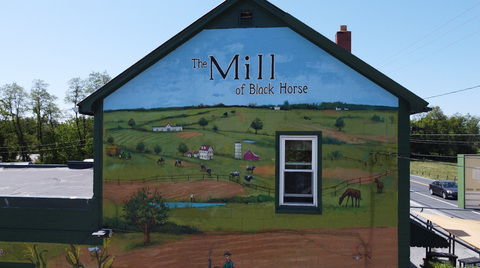The Problem:
Parasites are becoming resistant to current de-worming products. De-worming products are becoming less effective because of this.
Horse’s health can be adversely affected with a heavy parasite burden (colic, chronic coughing, poor keeper, poor performance, unthrifty, internal organ damages, etc…)
How has this happen?
Over use of de-worming products
Inappropriate use of de-worming products
Not knowing what parasites were present when de-worming
Deworming according to the calendar
Treating all horses the same when de-worming
Many other factors affecting grazing practices and pasture management
THESE ARE JUST A FEW OF THE MAJOR CONTRIBUTING FACTORS (THERE ARE MANY MORE)
What can we do?
Performing fecal egg counts on a regular basis and tailoring your deworming program based on these results is the single most important thing you can do to improve your parasite control strategy.
Treat with the right drug, at the right dose, at the right time, in the right horse.
What is the ultimate goal of any deworming program?
To reduce parasite reproduction and contamination of the environment
Interesting facts
20% of the horses harbor 80% of the parasites
Worming according to the calendar encourages parasite resistance.
Not all horses are equally susceptible to parasite infection.
Removing feces from the environment before eggs become infective provides parasite control that is superior to deworming.
New additions to a herd can introduce resistant strongyles to a previously “clean” population.
More than 150 different parasites can infect horses (only a small number pose a real problem for horses)
The most important parasites (the big 4) to target are round worms, Large and small strongyles and tape worms.
Younger horses are more prone to problems associated with parasites and should be treated differently than adult horses.
The active ingredient in dewormers influences the interval between deworming times
Horses pastured with donkeys are more likely to harbor lung worms and should be treated accordingly
Pasture management practices that may help.
Rotate pastures
Do not overcrowd pastures
Plant annuals such as winter wheat
Rotate livestock species in pastures when possible
Quarantine and deworm all new horses prior to introduction to the heard
Remove feces from grazing areas on a regular basis (every few days)
Avoid feeding from the ground
Harrow pastures only when climatic conditions (hot summer temps) will kill the developing parasites
Leave freshly dragged pastures empty for several weeks to allow the weather to kill the maximum number of parasites.
There are three classes of dewormers
Benzimidazoles (Fenbendazole, Oxibendazole)
Pyrantel (Strongid)
Macrocyclic lactones (Ivermectin, Moxidectin)
How to make sure the proper dose is given
Here is a way to estimate your horse’s weight
Measure heart girth (directly behind elbow)
Measure body length (from point of shoulder to point of buttocks)
girth X girth X length ÷ 330 = body weight
Consult your veterinarian if there are any questions concerning your horse’s fecal egg count results and recommendations about your deworming program
Egg reappearance period
Moxidectin- 12 weeks
Ivermectin- 8 weeks
Pyrantel- 4 to 6 weeks
Benzimidazoles- 4 weeks
Classifications of shedders
Low egg shedders <200 eggs per gram of feces deworm? no
Moderate egg shedders 200 to 500 eggs per gram of feces deworm? maybe
High egg shedders >500 eggs per gram of feces deworm? Yes










